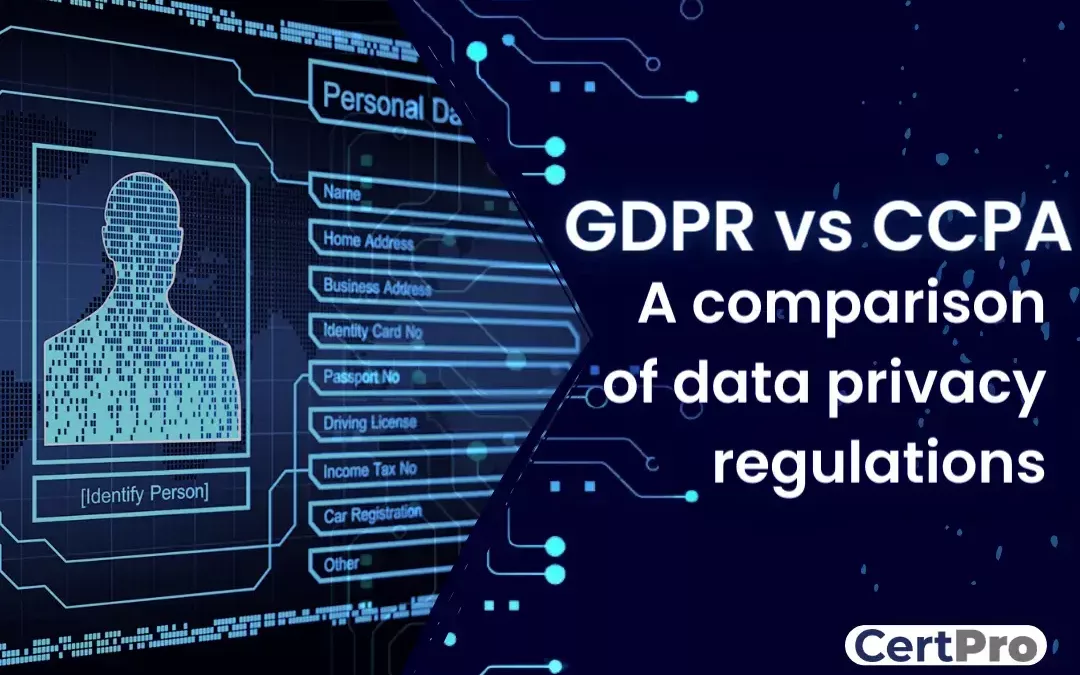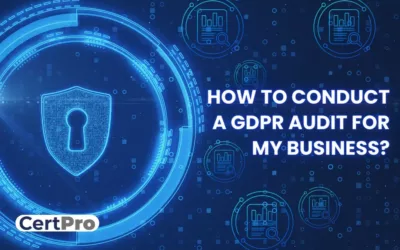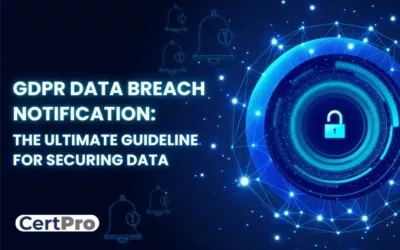If you are reading this article, it’s likely because you want to understand the key differences between the General Data Protection Regulation (GDPR) and the California Consumer Privacy Act (CCPA) when it comes to data privacy regulations. In this article, we will analyze both compliances in depth and provide insights on how to comply with these regulations effectively. Organizations that operate in the European Union and California or process sensitive information from these regions need to be aware of the distinctions between GDPR and CCPA compliance in order to protect individual privacy and avoid severe fines and penalties.
Overview of the GDPR and CCPA:
The GDPR and CCPA are two data privacy laws designed to protect personal information. Here’s a brief overview of each regulation:
About the GDPR:
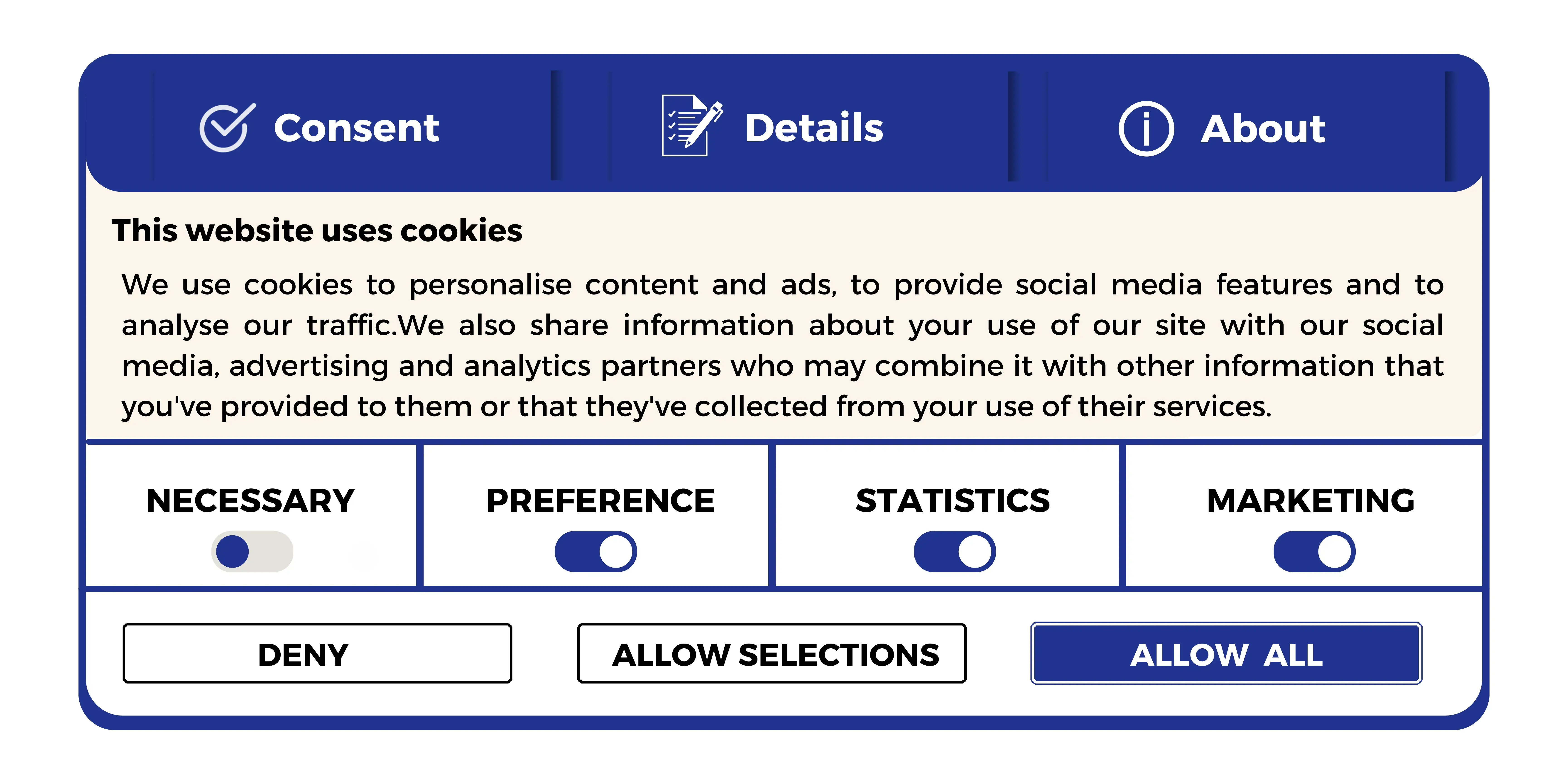
The European Union adopted the GDPR in May 2018 as a regulation that is applicable to people who live in the EU and EEA.
Their main goal is to ensure that personal data is collected, processed, and stored securely and with explicit consent from data subjects. GDPR grants individuals rights such as the right to data portability, the right to be forgotten, and the right to access and update their personal information.
Obtaining user consent for GDPR cookies is a crucial aspect of both CCPA and GDPR, although they have different approaches. It is important to comply with these regulations to avoid hefty fines. For instance, the maximum penalty for GDPR violations is €20 million or 4% of the organization’s annual global turnover, whichever is higher. Thus, businesses must take the necessary measures to obtain user consent and ensure they are GDPR compliant to avoid facing penalties.
About the CCPA:
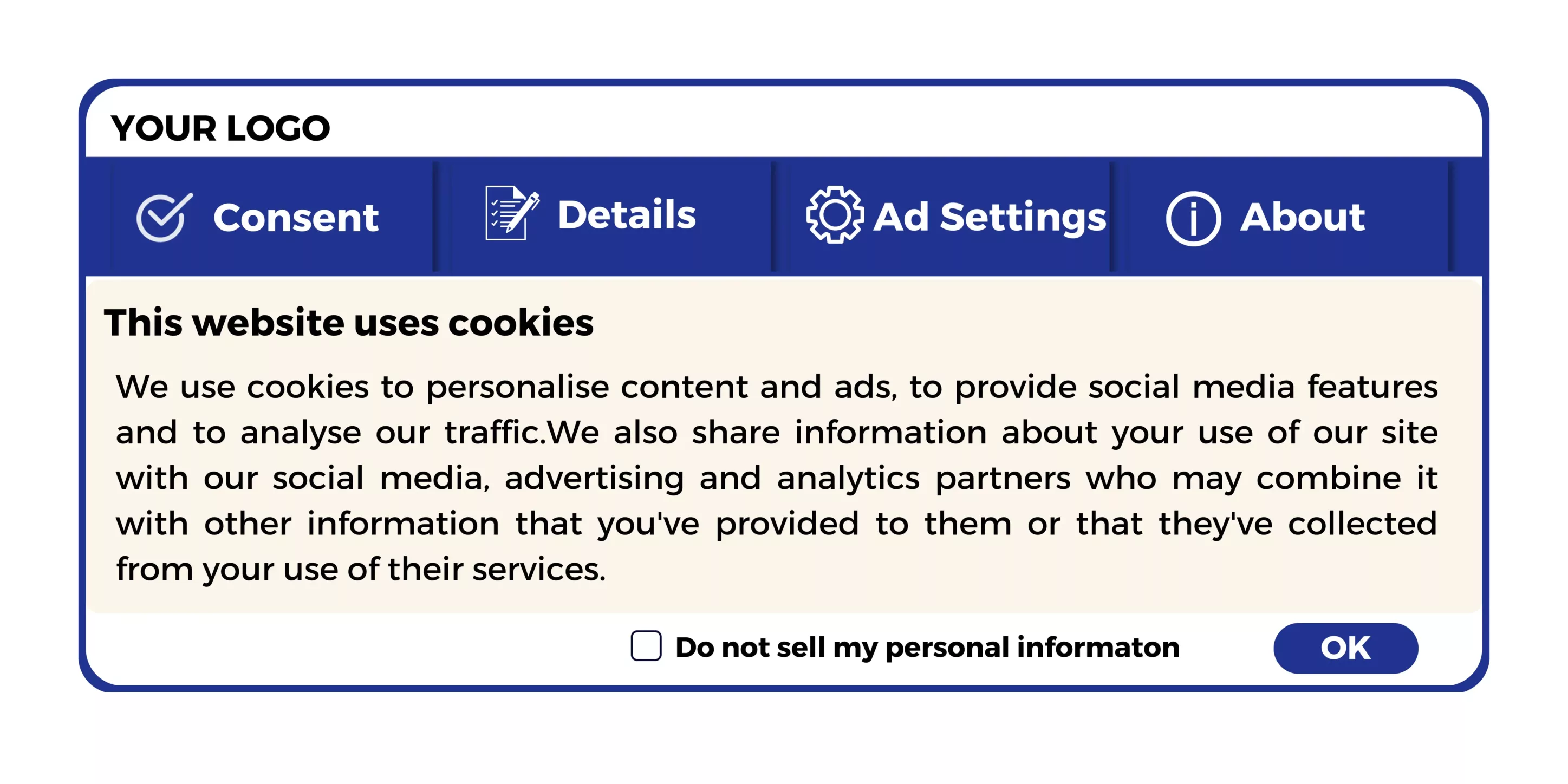
The CCPA is a state law in California that came into effect on January 1, 2020. It grants consumers the right to know what information companies collect about them, the right to have that information deleted, and the right to opt out of the sale of their information. Also, the CCPA establishes penalties for non-compliance, with a maximum fine of $7,500 for each violation.
Compliance with GDPR and CCPA:
GDPR:
To comply with GDPR and ensure customer privacy, companies need to follow several key procedures, including:
- Data protection officer (DPO): Assigning a DPO helps manage privacy and data security concerns.
- Data Protection Impact Assessment (DPIA): To detect any risks or prospective breaches, a data protection impact assessment (DPIA) and a mapping of the organization’s data flows are performed.
- Secure data: putting in place the necessary organizational and technical safeguards to secure personal data, such as encryption, access controls, and procedures for data backup and recovery.
- Processing data: ensuring that data subjects are informed in a clear and straightforward manner about the collection, use, and disclosure of their personal data, as well as their GDPR rights.
- Consent: Before collecting and processing a data subject’s personal information, they must have their express consent.
- User rights: giving people who are data subjects the ability to view, update, and have their personal data deleted, as well as the ability to object to its processing.
- Non-compliance: reporting any data breaches within 72 hours to the appropriate authorities and the impacted data subjects.
- Repeating the data protection policy: revising data protection policies and practices on a regular basis to guarantee continued adherence to GDPR standards
CCPA:
A privacy law referred to as the California Consumer Privacy Act (CCPA) regulates the gathering, use, and sale of personal data about California citizens. Companies must follow the following guidelines in order to be in compliance with the CCPA:
- Notice: Companies are required to give consumers a notice outlining the types of personal information that will be collected and how it will be used at or before the point of collection. The right to object to the sale of personal information must also be explained in the notification.
- Opt-out: Companies are required to give customers the option to refuse the sale of their personal data. The “Never Sell My Sensitive Information” feature, which enables customers to refuse the sale of their personal information, must be present on businesses’ websites.
- Access: Consumers must have the option to request access to their personal information from businesses. Access requests must receive a response from companies within 45 days.
- Deletion: Companies are required to give customers the option to ask for the deletion of their personal data. Requests for deletion must receive a response from businesses within 45 days.
- Non-Discrimination: Companies are prohibited from discriminating against customers who use their CCPA rights. Companies are not allowed to refuse customers who exercise their CCPA rights for any goods or services, charge them a different price, or offer a lower level of service.
- Data Security: Organizations are required to take reasonable security precautions to guard against unauthorized access, disclosure, and destruction of personal data.
- Vendor Administration: Agreements must be in place between businesses and service providers who handle personal data on their behalf. The contracts must have clauses stipulating that service providers must follow CCPA guidelines.
- Record-Keeping: Businesses must maintain records of consumer requests and responses for at least 24 months.
Similarities between GDPR and CCPA:

Before getting to know the difference between GDPR and CCPA, let’s check out the similarities they both share:
- Global impact: Although the CCPA and GDPR only apply to citizens of California and the EU and EEA, respectively, both laws may have an effect on organizations operating internationally, particularly if they handle personal data from these jurisdictions.
- Transparency: Both regulations mandate that businesses be transparent and forthright about the personal information they acquire, how they use it, and with whom they disclose it.
- Implementation: Both ordinances include measures for implementation, penalties for non-compliance, and hefty fines for infractions.
- Data protection impact assessments: To identify and reduce risks related to processing personal data, both legislation and practice call for businesses to conduct data protection impact analyses (DPIAs).
- Individual rights: Individuals have specific rights under both legislation, including the ability to view and update their personal information, the right to be forgotten, and data portability.
- Focus on data privacy: By limiting the acquisition, use, and storage of personal data, the CCPA and GDPR both aim to preserve individuals’ right to privacy.
Comparison between GDPR and CCPA: Key Differences
The differences between GDPR and CCPA that you should know:
- Scope: Individuals residing in the European Union (EU) and the European Economic Area (EEA) are subject to GDPR, while California residents are subject to CCPA. In contrast to the CCPA, which only covers one US state, the GDPR includes 27 EU member states as well as three EEA nations.
- Personal Data: Compared to the CCPA, the GDPR includes a broader definition of personal data. While the CCPA defines personal information as any information that identifies, relates to, or could be related to a specific consumer or household, the GDPR defines personal data as any information that can be used to identify an individual.
- Who do they affect? All businesses and their related entities in the European Union (EU) that handle personal data of individuals must adhere to GDPR compliance. This covers non-profit organizations and online retailers. Every data subject (user) in the EU must comply with the GDPR, regardless of their citizenship, type of residency, or other factors.
- Penalties: In comparison with the CCPA, GDPR has greater maximum penalties. While the maximum fine under the CCPA is $7,500 per infringement, the General Data The General Data Protection Regulation (GDPR) allows for a penalty of as much as $20 million, or four percent of a company’s annual global sales.
- Data breaches: The GDPR requires businesses to notify authorities of data breaches within 72 hours, while the CCPA requires businesses to notify authorities of data breaches as well as any affected customers within a reasonable time limit.
Whereas the CCPA is applicable to legal California residents. The CCPA applies to the business when it meets one of the following three criteria:
- whose annual revenue is above $25 million
- whereas it collects or shares the data of more than 50,000 users.
- The sale of said user data generates fifty percent (50%) of the total revenue.
The GDPR and CCPA represent two significant data privacy regulations that have far-reaching implications for businesses operating in the EU and California, respectively. Both regulations prioritize protecting consumer data privacy, but they differ in their scope, requirements, and enforcement mechanisms. As such, organizations that operate in both regions or have customers and employees in both areas need to carefully navigate the distinct compliance requirements of each regulation.
Compliance with these regulations can be a complex and time-consuming process, but it is essential for businesses to prioritize data privacy and security to protect both their customers and their own reputation. This is where CertPro can help. As a trusted compliance and cybersecurity partner, CertPro offers comprehensive solutions to help businesses achieve and maintain GDPR and CCPA compliance, as well as other data privacy regulations around the world. With CertPro’s expert guidance, businesses can ensure that their compliance efforts are effective, efficient, and sustainable over the long term.
FAQ
Does GDPR only apply to consumers?
No matter where they are situated, all businesses processing data from EU citizens must comply with the GDPR. As a result, if businesses outside the EU collect data from EU customers, they must adhere to the GDPR.
Which data is not GDPR-protected?
The UK GDPR does not apply to totally anonymous information. Even if information that appears to be about a specific person is false (i.e., factually erroneous or about someone else), the information is still personal data because it is about that person.
What are the CCPA guidelines?
It is against the rules to exaggerate a product’s or service’s benefits in a way that can lead to unrealistic expectations among children. Additionally, they forbid making any nutritional or health claims or benefits that have not received adequate and credible scientific backing from a recognized organization.
Which one is more stringent, GDPR or CCPA?
When it comes to requesting visitors’ express authorization to place cookies on their devices, CCPA is less stringent than GDPR. Websites don’t need visitors’ explicit permission to store cookies on their devices. Websites must only provide visitors with the option to decline cookies that sell their personal information.
Who is exempt from the CCPA?
The CCPA exempts a number of businesses that are subject to various laws, including insurance companies, agents, and support organizations. This comprises the institutions, brokers, and support groups covered by the Insurance Information and Privacy Protection Act (IIPPA) of California.

About the Author
SHREYAS SHASTHA DRUPADHA
Shreyas Shastha Drupadha, a Senior Business Consultant. Serving as an ISO 27001 Lead Auditor, Shreyas ensures the establishment of robust information security management systems. His expertise also encompasses GDPR, HIPAA, CCPA, and PIPEDA implementation.
HOW TO CONDUCT A GDPR AUDIT FOR MY BUSINESS?
The General Data Protection Regulation (GDPR) is vital for today's digital landscape. It is a cornerstone for safeguarding people's privacy rights in the European Union (EU). Therefore, organizations dealing with EU residents' data must follow these GDPR rules....
GDPR DATA BREACH NOTIFICATION: THE ULTIMATE GUIDELINE FOR SECURING DATA
Modern businesses require incorporating personal data protection strategies to ensure customer satisfaction and business growth. In this respect, the European Union's General Data Protection Regulation (GDPR) sets strict standards for maintaining data security....
GDPR Compliance Software: Boosting Business Efficiency
Handling large amounts of personal data has become a significant concern in today's digital landscape, necessitating a thorough understanding of the intricate legal framework, particularly within the European Union. An essential piece of legislation in this regard is...

